If there’s anything that has become a worldwide icon of Australia, it’s definitely Uluru. The massive rock sitting in the desert in the centre of the country is the world’s largest single rock monolith. It marks Australia’s spiritual heartland and has strong ties to Aboriginal culture and history. To experience the magic of Uluru, you have to see it for yourself.
*This post may contain affiliate links, as a result, we may receive a small commission (at no extra cost to you) on any bookings/purchases you make through the links in this post. As an Amazon Associate, we earn from qualifying purchases. Read our full disclosure
Inside and outside of Uluru-Kata Tjuta National Park, there is so much natural beauty to explore besides the iconic rock. If you’re yet to visit the sacred landmark, check out these phenomenal experiences to spark your Uluru wanderlust.

Traveling Soon? Here is a list of our favourite travel providers and accessories to help get you ready for your upcoming trip!
Is Uluru Worth Seeing?
In short, yes! It’s an absolutely magical place that you have to experience in person to truly appreciate. There are so many things to do in Uluru, Australia. Photos just don’t do it justice!
Uluru At A Glance
How big is Uluru? How tall is Uluru? In photos, the giant rock definitely looks pretty massive but how big really is it? For starters, it’s 348 m tall, which is comparable to the height of the Eiffel Tower. The large oval shape is 3.6 km long and 1.9 km wide, with a circumference of 9.4 km. With a circumference of nearly 10 km, Uluru can be circled in about 3-4 hours.
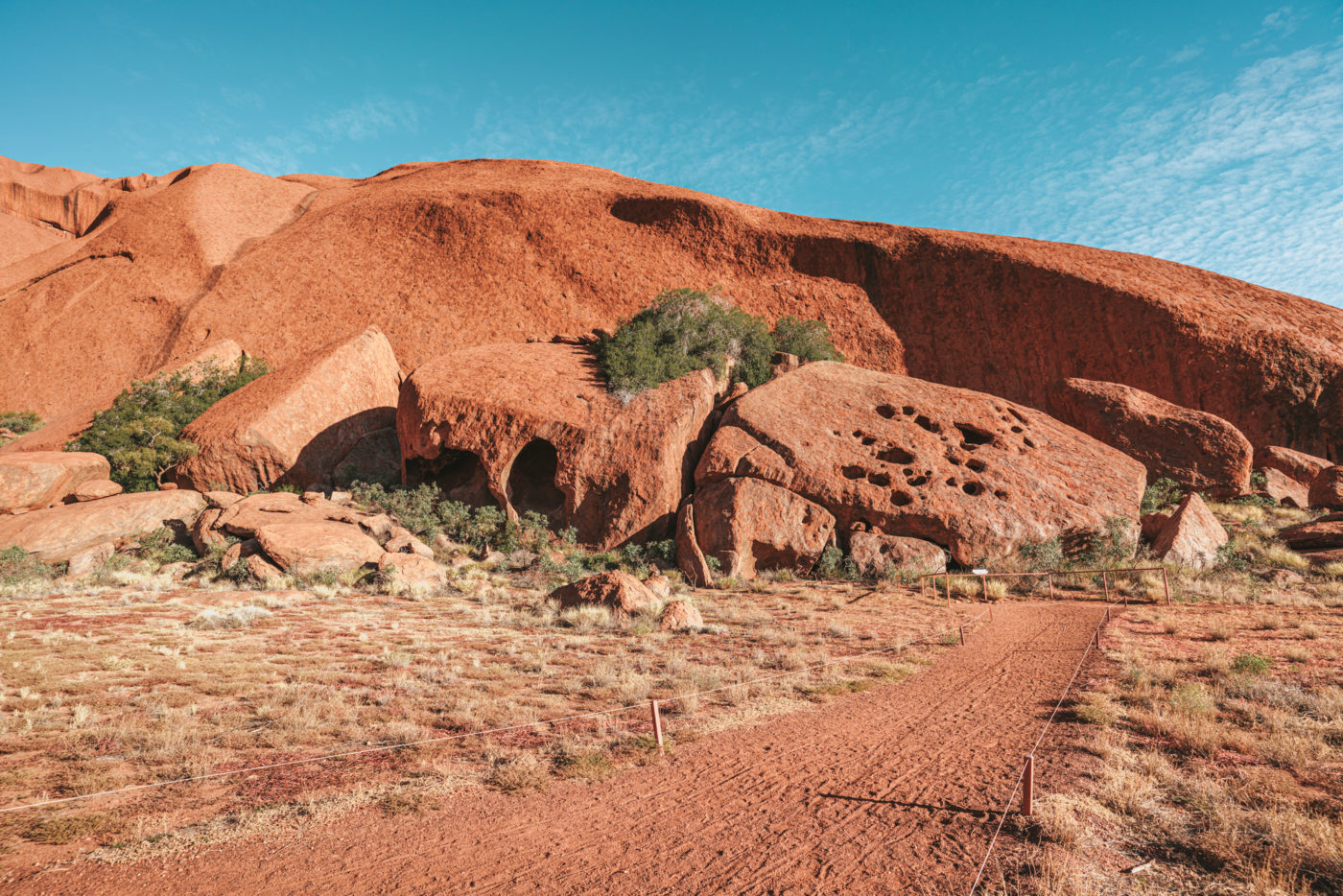
Where Is Uluru Located?
Uluru is located in the southern part of the Northern Territory in Australia. It’s in an area filled with dry desert plains where red dirt dominates the landscape. It’s no wonder they call it Australia’s Red Centre. The nearest major town to Uluru is Alice Springs on the Stuart Highway.
How To Get To Uluru
Alice Springs may be the nearest major town, but don’t be fooled by its close proximity on the map. It takes around 5 hours (470 km) to drive from Alice Springs to Uluru, and that’s on sealed roads.
The small town of Yulara is much closer at 25km away. The town is home to Ayers Rock Resort, which pretty much dominates the town. It has a regional airport with daily flights to Uluru from Sydney, Melbourne, and Brisbane. Because of the distance, many opt to fly or take a road trip out of it on the famous Red Centre Way.
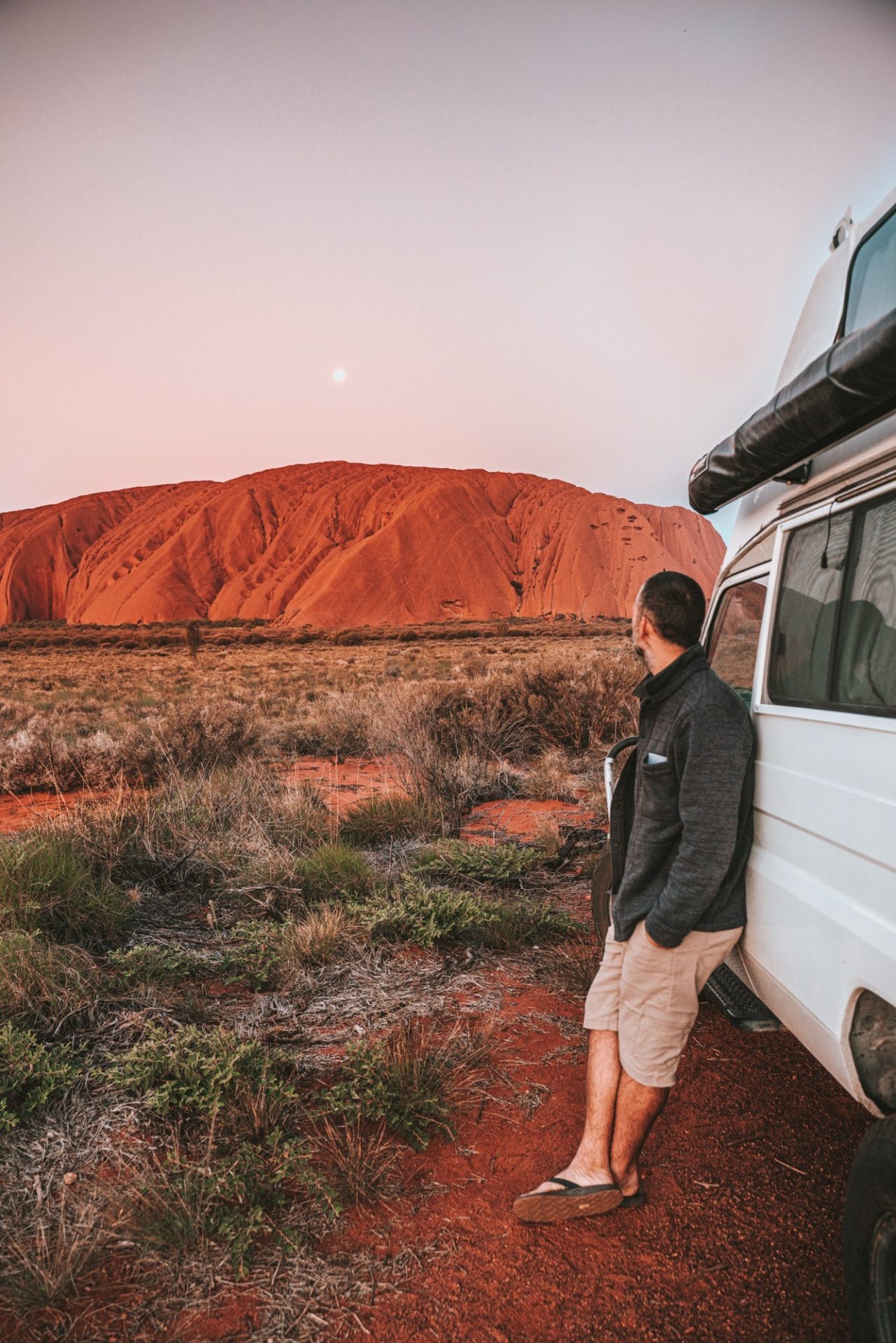
Common Distances To Uluru Within Australia
Adelaide to Uluru: 2-hour flight / 17 hr drive
Brisbane to Uluru: 3-hour flight / 32 hr drive
Darwin to Uluru: 2-hour flight / 19.5 hr drive
Melbourne to Uluru: 2.5 hour flight / 25 hr drive
Sydney to Uluru: 3-hour flight / 29 hr drive
Best Time To Visit Uluru
The best time to go to Uluru is from May-September. The days are fresh and warm but comfortable at 20-30°C with very little rain. This makes for good hiking and exploring weather with vibrant colours and wildflowers dotting the park.
That said, the hiking trails can get pretty chilly at night in the peak of winter, with temperatures dropping down to 0°C, so be sure to pack extra layers.
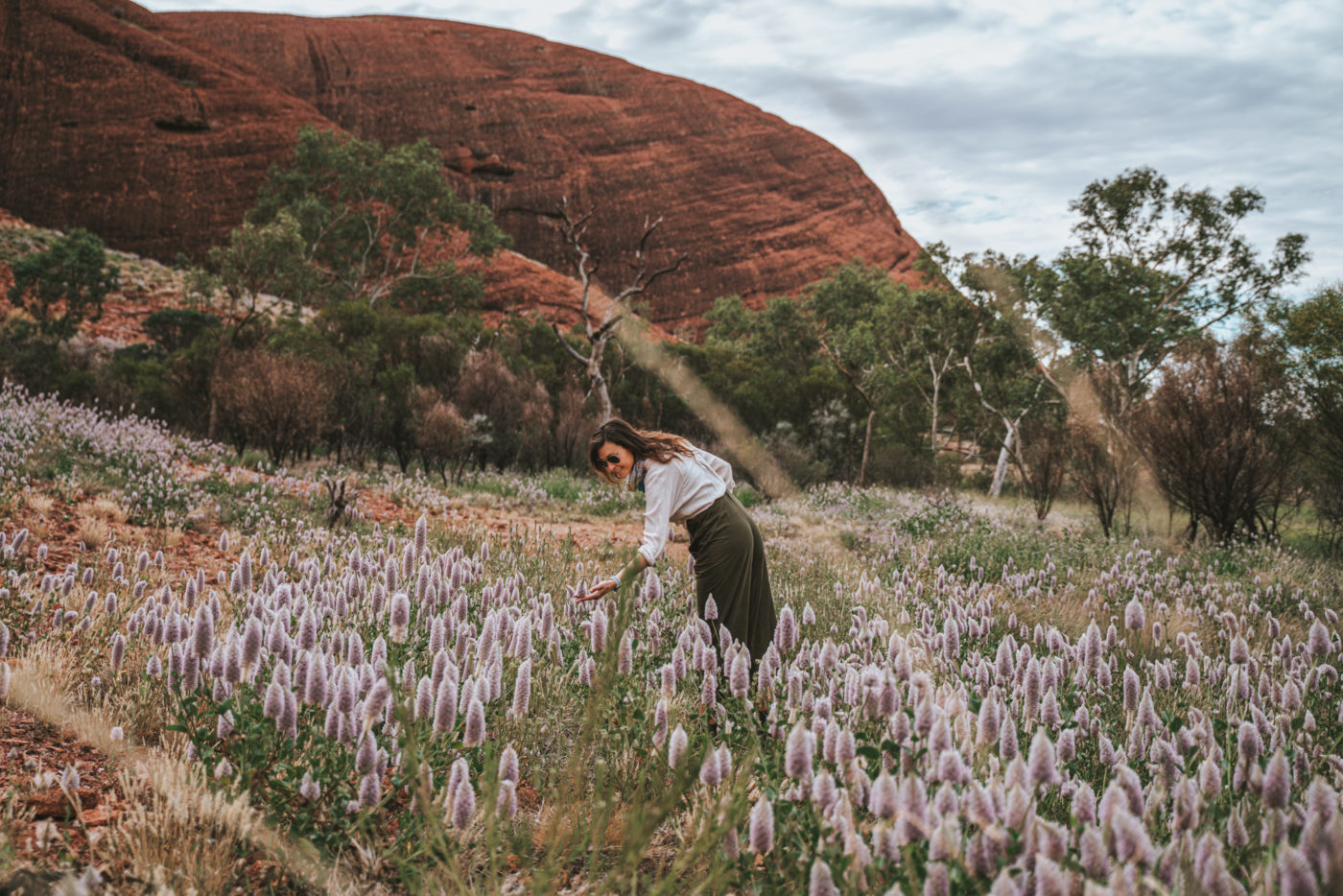
Entry Fees:
Uluru is located within Uluru-Kata Tjuta National Park. The park is home to Uluru or Ayres Rock, in addition to Kata Tjuta, otherwise known as the Olgas, another rock formation located some 30 km from Uluru. Entrance to Uluru Kata Tjuta National Park requires a park pass. The pass is $38 and grants you entry for 3 days—an ideal amount of time needed to visit both rock formations, enjoy all the walks within the park and catch at least one sunset or sunrise in the park. If that’s not enough, you’ll be pleased to know that the 3-day pass can be extended for free for another 2 days, giving you a total of 5 days to explore the park.
The grace extension period is not widely advertised, but ask for it at the ticket kiosk, and you should have no problems. We definitely took advantage of the extra days during our visit!
Best Things To Do In Uluru, Northern Territory
Uluru has a stacked bucket list of extraordinary activities to explore, from riding a camel to sipping champagne at sunset.
Learn The Story Behind Uluru
Upon our arrival, we wanted to explore as many Uluru tourist attractions as possible. Our first stop was the Cultural Centre, where we looked into the rich heritage of the Anangu, the Aboriginal people of the Western Desert. The exhibits at the Cultural Centre were very informative, and through the guided tour, we learned about the Anangu culture, their deep connection to the land, and the park’s historical significance.
During the guided tour, we watched a video presentation about the Anangu people and the cultural significance of Uluru. It was through our guide’s storytelling that it truly came to life. We found it intriguing that Aboriginal tradition values gender equality.
Inside the Cultural Centre, there’s an Aboriginal Art Gallery that exhibits captivating works from local artists. There’s also a gift shop, but we found the prices to be a bit expensive for souvenirs.
See Uluru/Ayers Rock In Uluru-Kata Tjuta National Park
All visitors should begin their adventure by visiting Uluru, also known as Ayers Rock. We recommend getting up close and personal with the rock by doing the 10 km Base Walk either on foot, by bike, or on fun Segway Tours.
Whichever adventure you choose, you’ll learn a lot from the experience about the nature, wildlife, and local Anangu culture of the region. The walk takes anywhere between 2.5-4 hours to complete and is best done in the early morning to avoid the heat of the day!
Our Tip: Do the Base Walk in the counterclockwise direction. This way, you’ll get to enjoy the best parts of the walk at the start of the 10km trail, get a chance to grab some great photos, before reaching the other side of the monolith, where sacred sites dominate the landscape and photography is largely prohibited.
Short on time? There are a couple of other shorter walks that may offer a good alternative.
The ranger-guided Mala Walk is a great alternative to the Base Walk. This guided walk allows you to discover more about the geology and traditional custodians of Uluru (Ayers Rock). You’ll journey through caves and admire Aboriginal rock art before reaching Kantju Gorge.
The walk is 2 km and can be done with a ranger guide or as a self-guided trek. It’s the best way to appreciate the massive rocks and immerse yourself in the natural beauty of the area!
Other walks include the Kuniya Walk to the Mutitjulu Waterhole and the North-East Face Walk that displays creation stories sacred to Anangu culture.
Note: Uluru is a photographer’s paradise, but it’s very important to respect the cultural beliefs of its traditional owners. The Anangu people request that visitors are mindful of signs indicating what can and can’t be photographed.
The best way to experience the magic of Uluru is to see it at different times of the day. Watching it light up at sunrise and sunset is a colourful feast for your eyes. Expect fiery red and orange tones to light up the sky and the monolith with it. The sight is magical!
Uluru is highly sacred to Aboriginal Australians. You can’t climb Uluru anymore; it was prohibited from October 2019 due to safety concerns and cultural respect for the Anangu people’s wishes.
In the past, many people climbed it, but the Anangu asked the park to prohibit it, and their request was honoured, restoring Uluru’s sacred status.
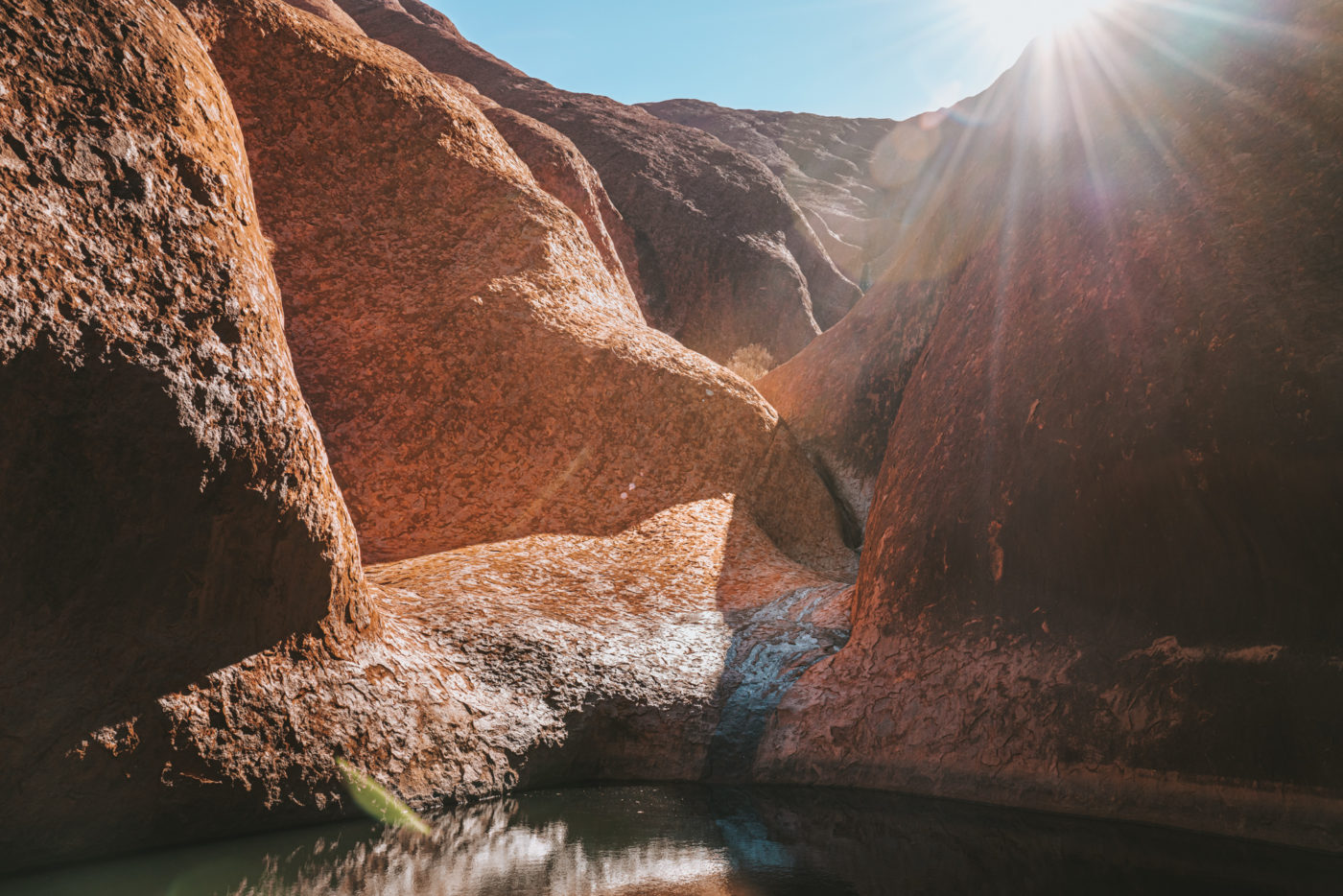
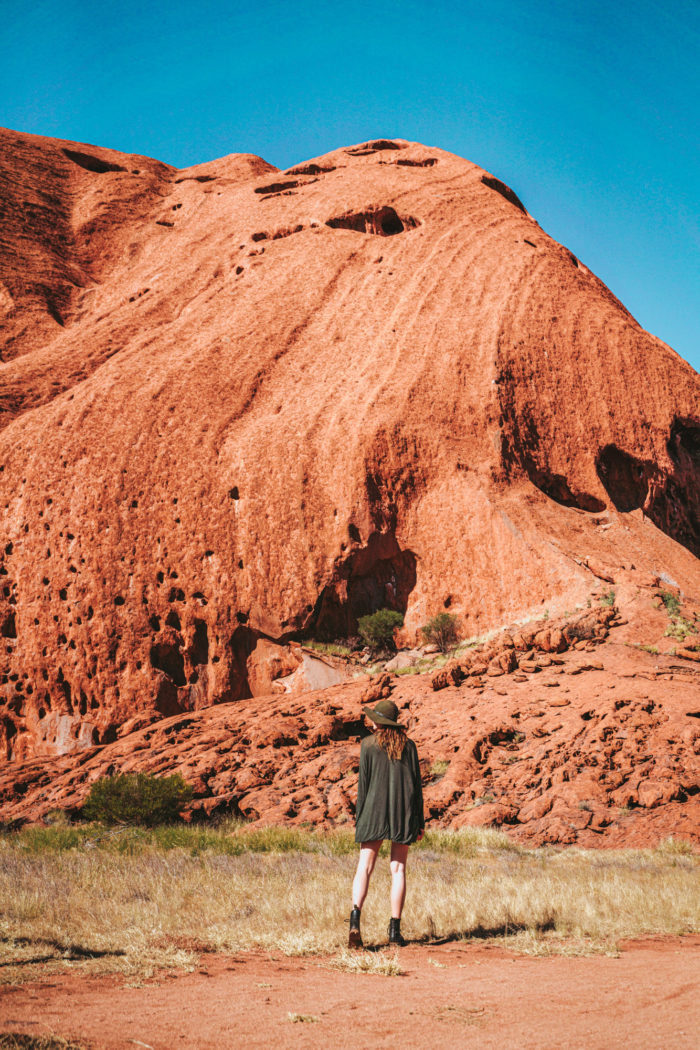
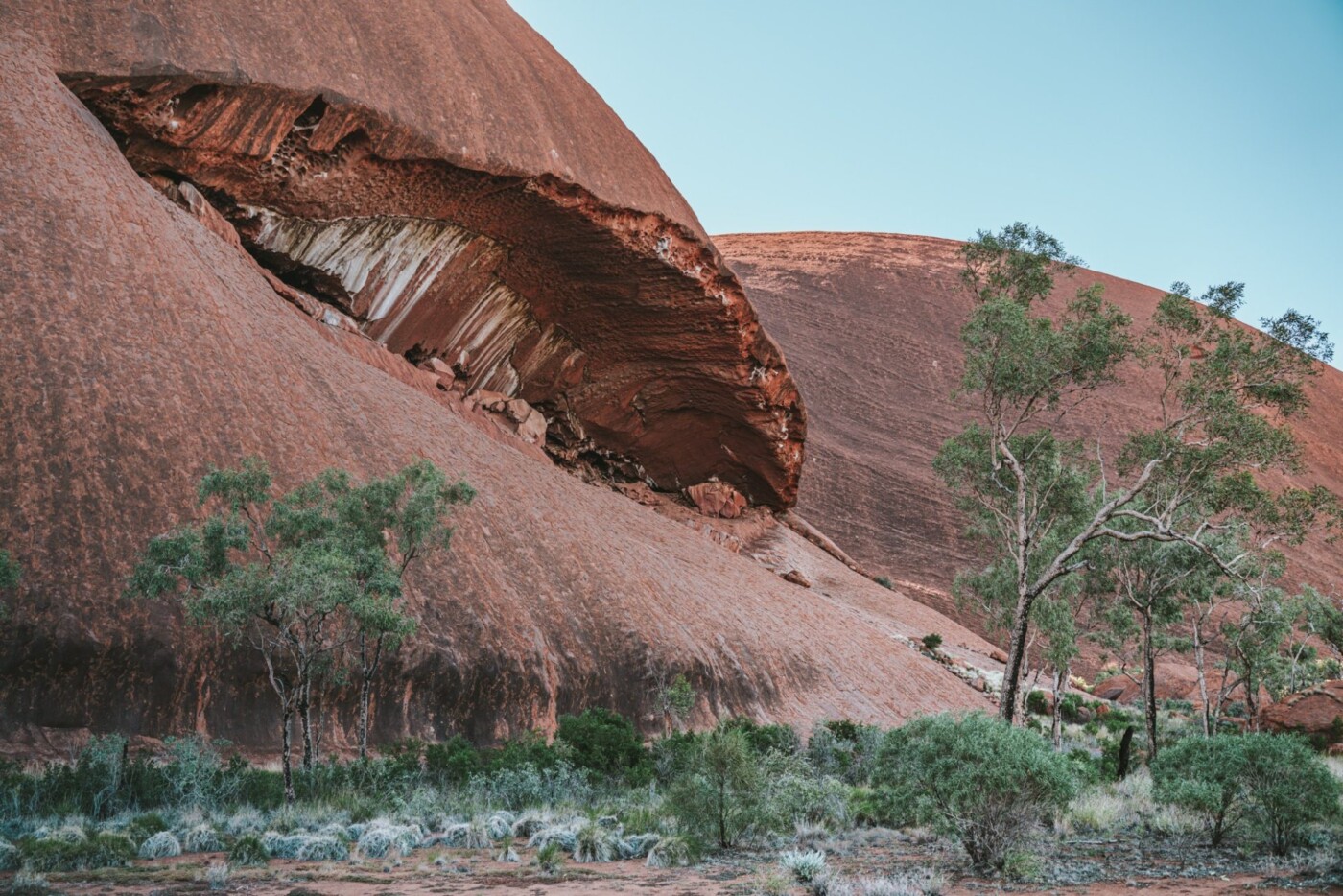
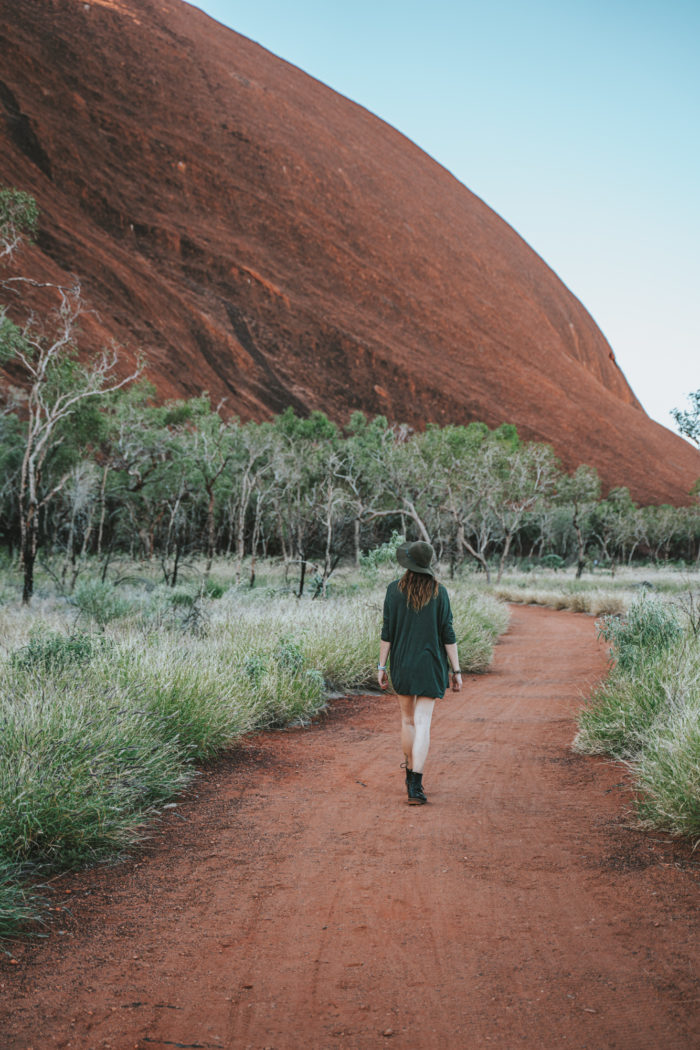
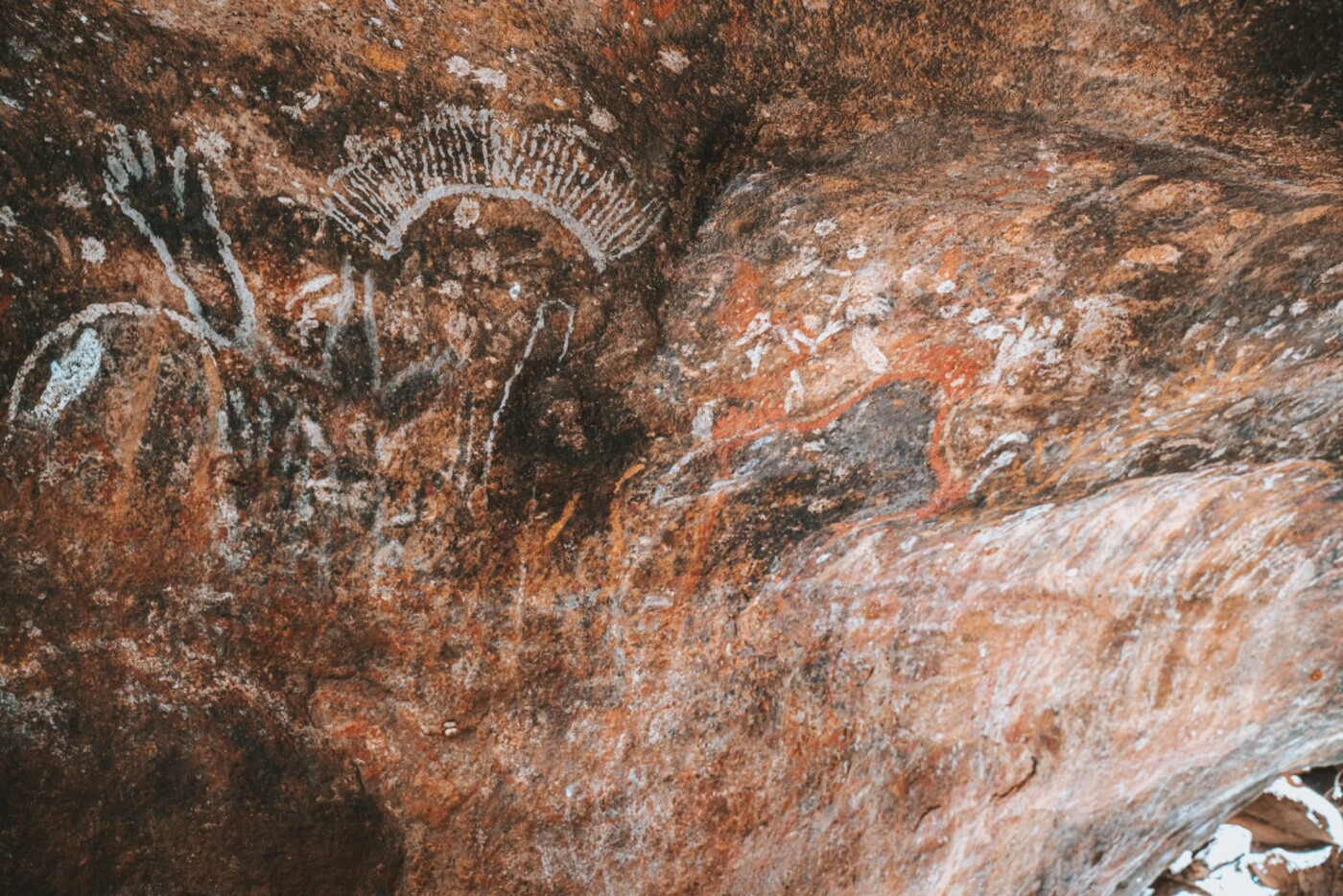
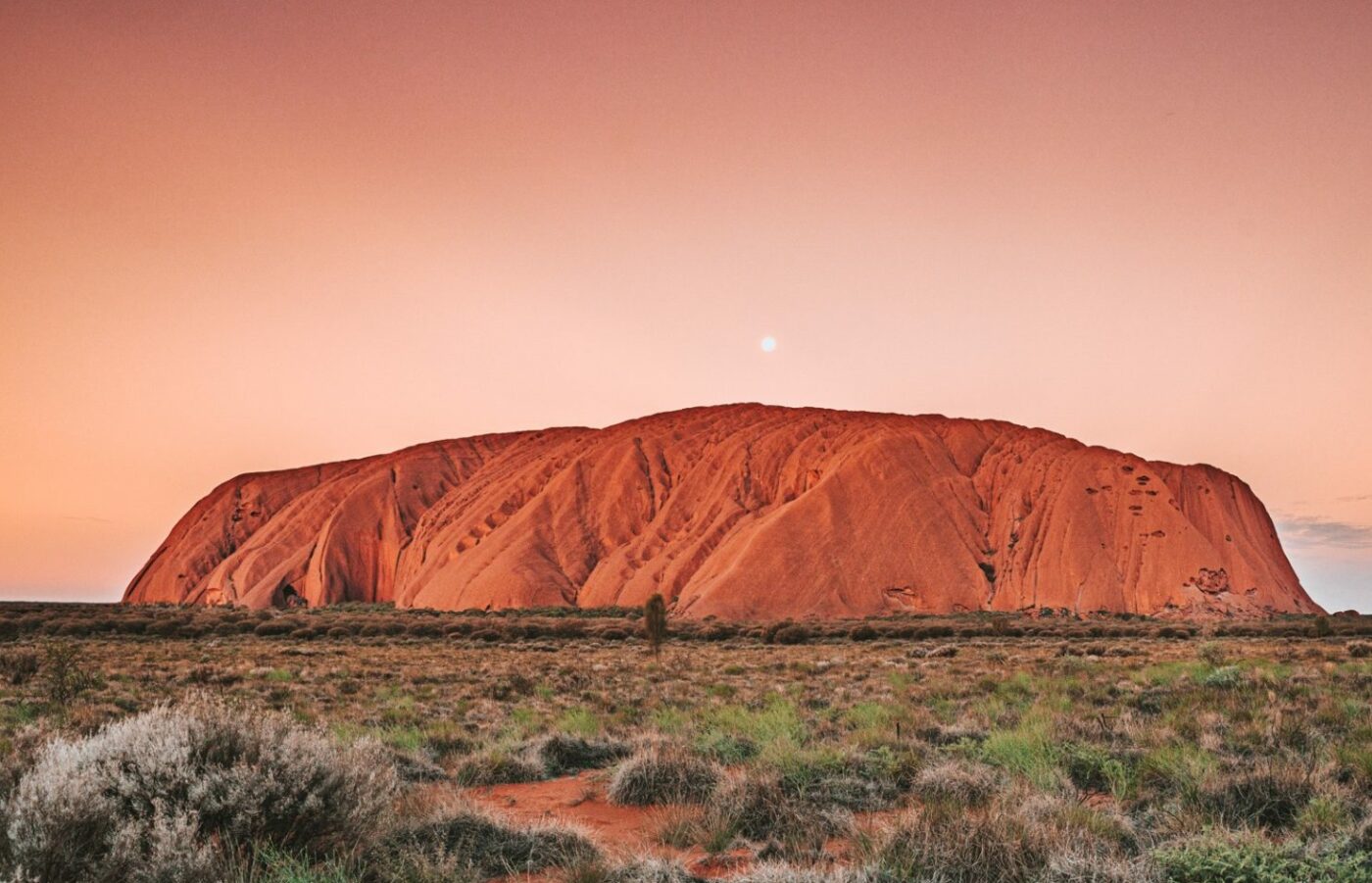
Visit Kata Tjuta (The Olgas)
The other incredible landmark in Uluru-Kata Tjuta National Park is the large domed rock formation called Kata Tjuta, or The Olgas.
Kata Tjuta is the word for “many heads” in the local Pitjantjatjara language. Kata Tjuta is located 30 km from Uluru and is often an overlooked spectacle. The soaring domed rocks are actually taller than Uluru, with the peak, Mount Olga, sitting at 546 m tall.
There are two sacred walks around the Olgas that boast stunning views and celebrated history. Our favourite is the Valley of the Winds Walk, which takes 3-4 hours to complete. If you don’t want to embark on the full circuit (which can be challenging in some areas), there are shorter tracks leading to the two breathtaking lookouts.
Similarly, the Walpa Gorge Walk follows a flower-laden canyon around rocky ledges and trickling streams. Plus, Walpa Gorge is one of the few places in the national park where you can see wallabies!
Just like Uluru, the Olgas light up with the sun throughout the day and illuminate in vibrant shades of red and orange. Catching the sunset over the Olgas is an absolute must for any day trip to Uluru.
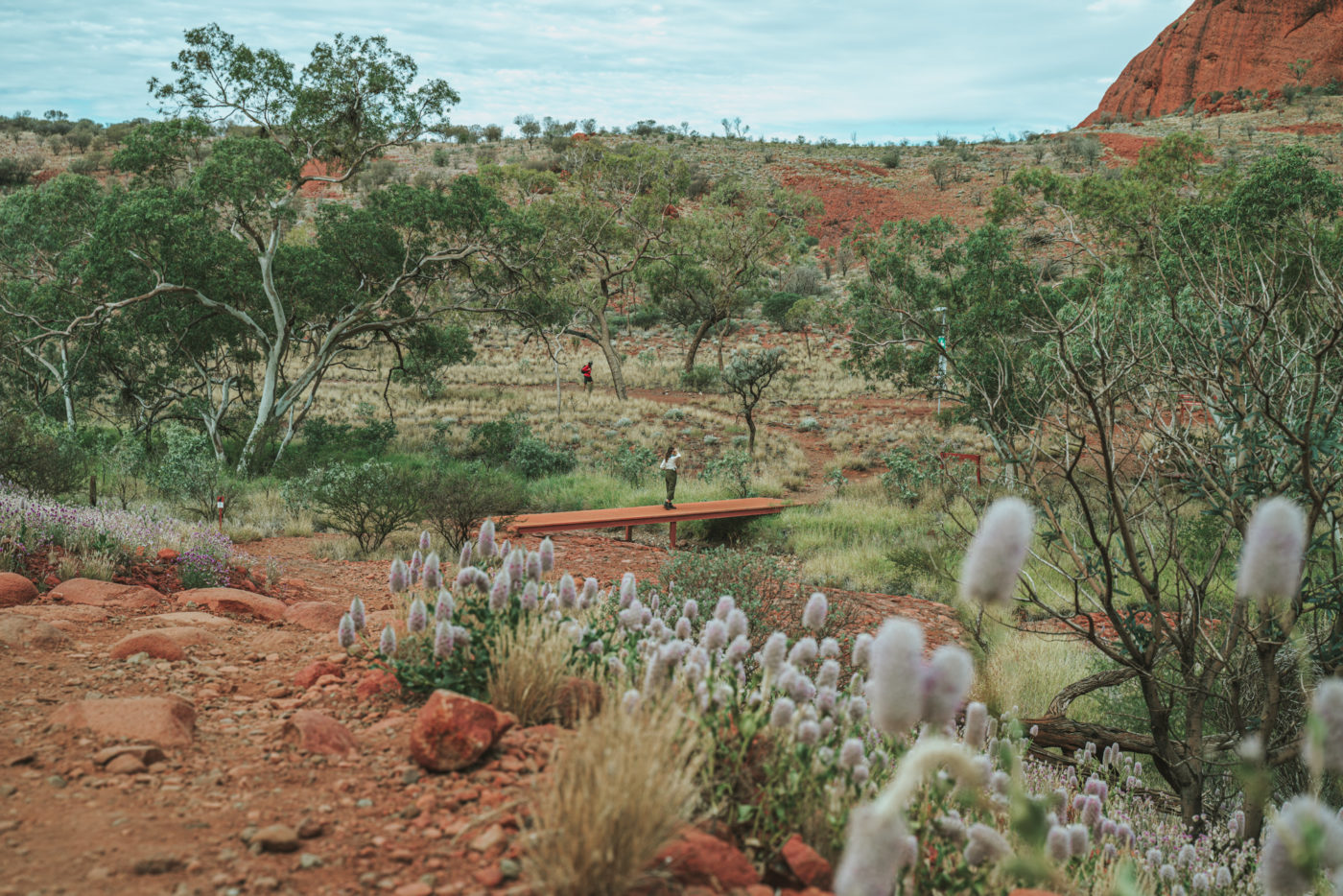
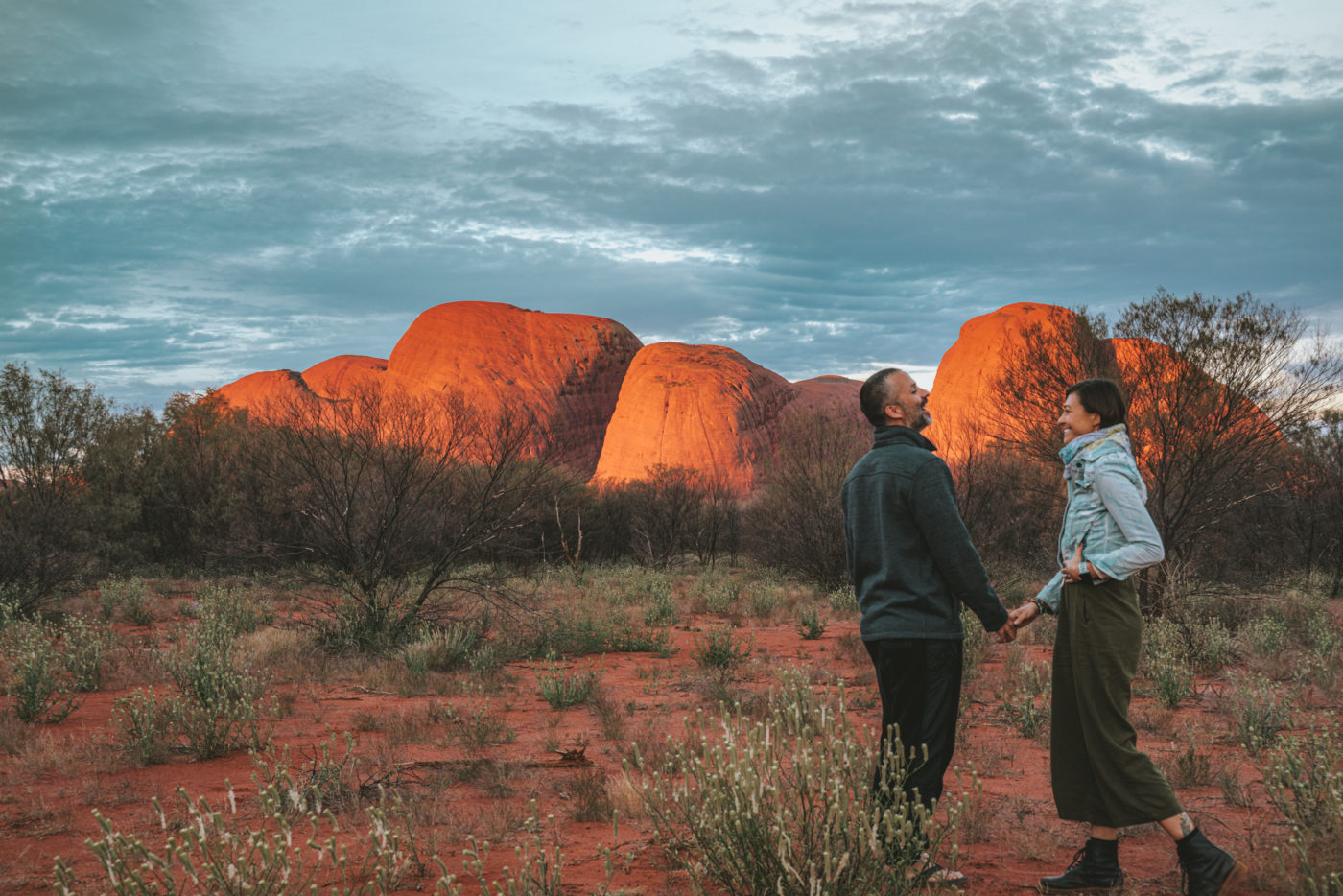
Our Tip: Go a bit past the crowded sunset spot, park your vehicle on the side of the road and you can watch the sun set over Kata Tjuta without the crowds. Just be sure to respect the park notices and protect the vegetation, by not going beyond the road onto the grassy areas.
What Else Can You Do In Uluru?
Join The Uluru Astro Tours
Uluru offers a fantastic blend of natural wonders and outdoor activities. If you are looking for a different experience, consider joining the Uluru Astro Tour to explore the Southern night sky with an expert guide.
Learn about the universe’s evolution, ‘The Big Bang’ theories, and star life cycles under the beautifully clear, unpolluted night sky. Try finding the Southern Cross as you do the stargazing!
Field Of Light
The Field of Light, known as Tili Wiru Tjuta Nyakutjaku in the local Pitjantjatjara language, means “looking at lots of beautiful lights”. Field of Lights at Uluru is an extraordinary masterpiece of twinkling lights that has gained international recognition. This magical installation of 50,000 beautiful solar-powered lights spans more than 7 football fields.
You can wander through the glass spheres in the early hours on a Sunrise Tour or catch the evening glow at sunset. For an extra special experience, you can also join a Field of Light Dinner for a 3-course menu paired with delicious Australian wines and a star talk that will walk you through Aboriginal perspectives.
Sounds Of Silence Dinner
Spend an evening under the star-dotted Australian Outback sky, dining on the dune top with the sound of didgeridoo in the background. The Sounds of Silence Dinner begins with champagne and canapes once the sun sets, followed by a 3-course feast.
You’ll get the first glimpse of beautiful Uluru as night falls and the sky lights up with stars. While we didn’t get to experience this magical dinner, friends of ours did, and they raved about the experience!
Our tip: Just make sure that the weather forecast doesn’t call for rain, or this magical experience will quickly become a very unpleasant one.
Sunset Camel Ride
Another fun activity at Uluru is ending a desert day with a sunset camel ride. If you are lucky, you’ll witness Uluru and Kata Tjuta changing colours as the sun goes down from a unique vantage point. You’ll learn about the flora and fauna of the region while meandering through the dunes atop a camel from the Camel Farm.
Visit The Camel Farm
Sure, you’ve heard of horse racing, but camel racing in Uluru is certainly unique. The Camel Farm is home to Australia’s only camel track, where racers ride camels every May for the Uluru Camel Cup. The farm is worth a visit to witness artisan saddle making or for a chance to sip a cold drink at The Royal Mail Hotel or the iconic Old Tom’s Waterhole.
If you happen to be in Uluru during the annual Camel Cup, be sure to attend! It’s an event like no other. Expect camel racing, outback games, dancing, fashion shows, and more! And, of course, if you are feeling lucky, don’t miss the opportunity to bid on a camel during the Camel Culcutta and try your luck at winning a big payout if your camel finishes in the top 3.
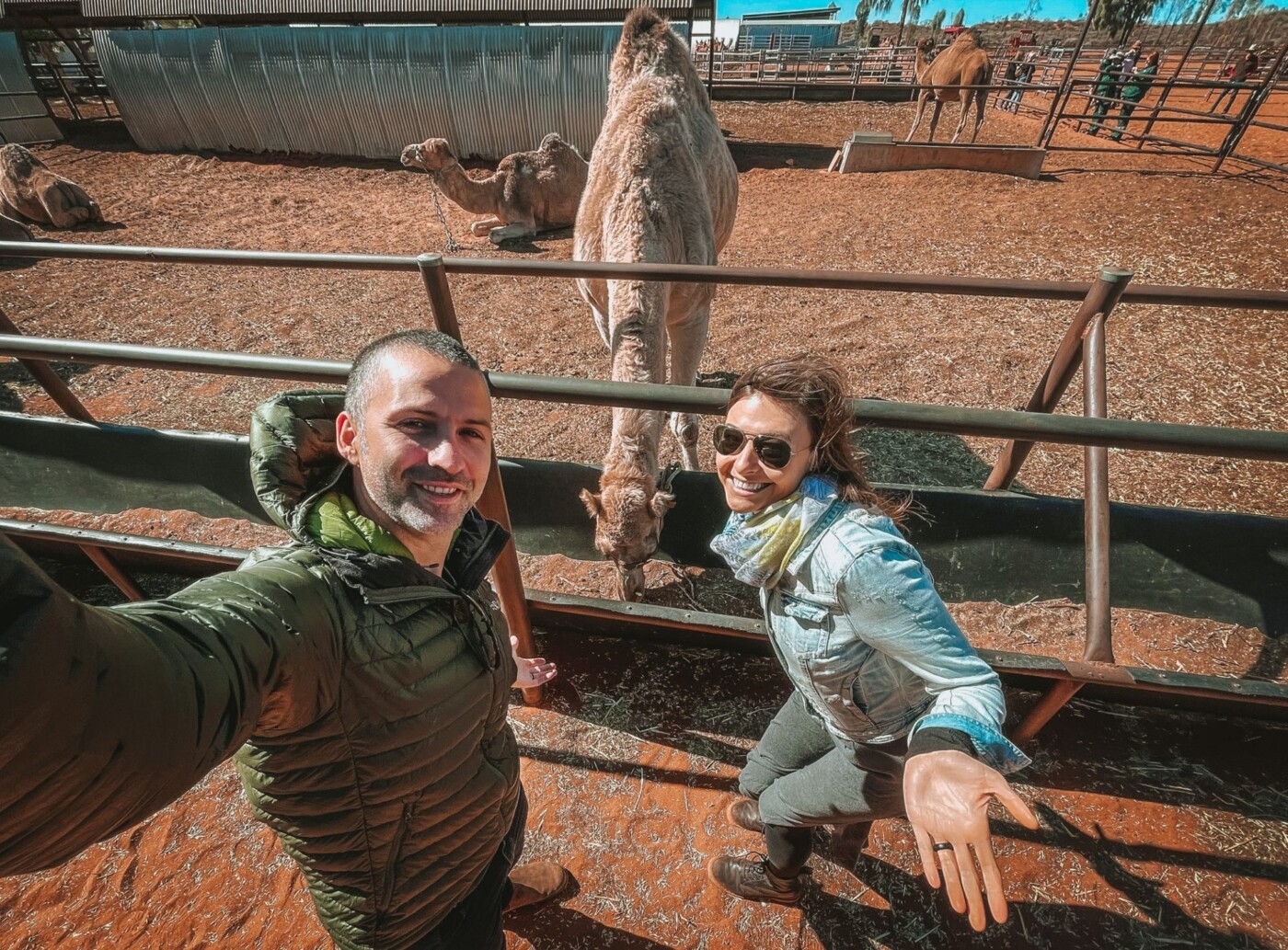
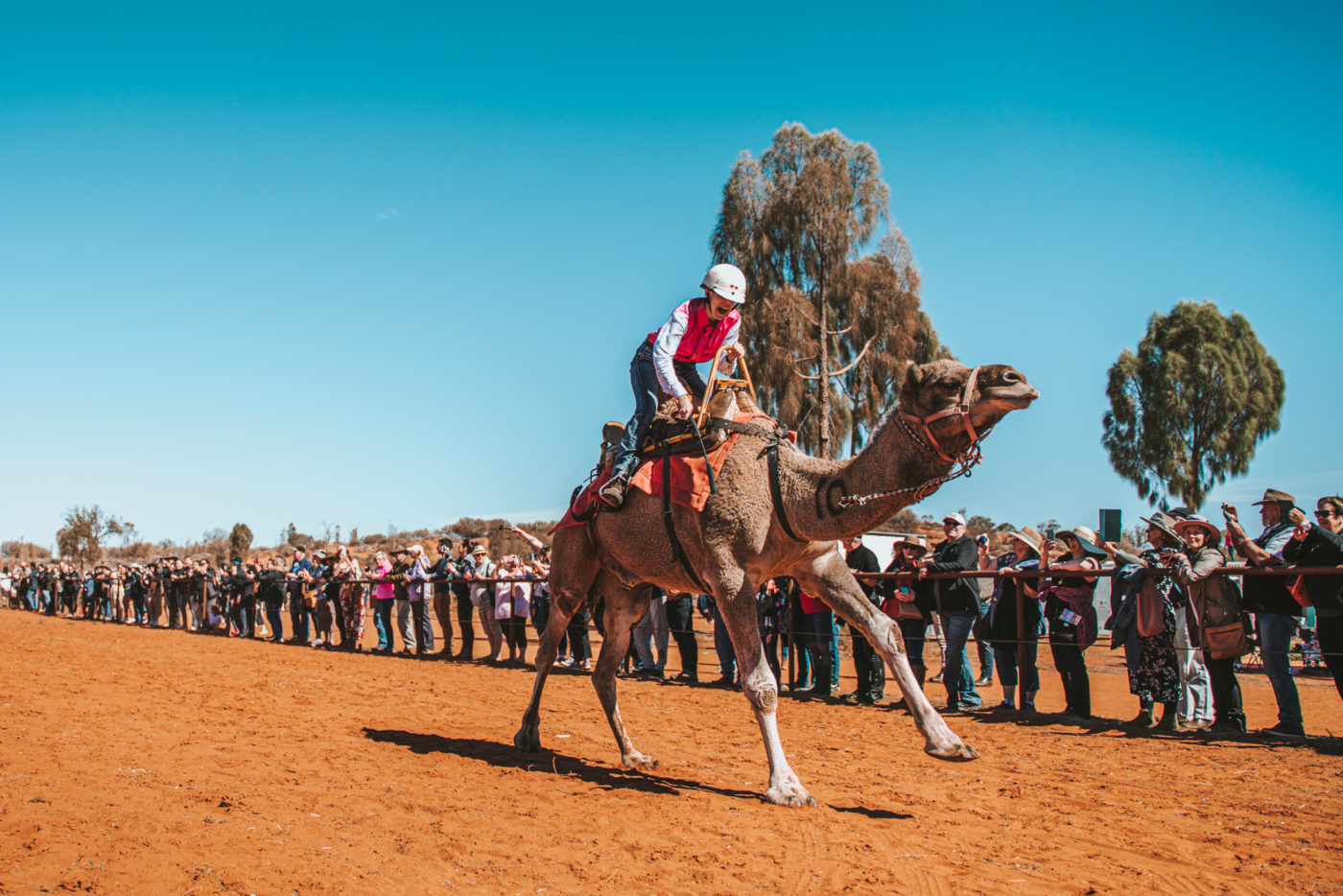
Day Trip To Uluru With BBQ Dinner Tour
If you have limited time, consider joining a tour to pack a few activities into your day. This Day Trip Alice Springs tour allows you to visit the iconic monolith and Uluru’s cultural centre, explore rock art, learn traditional stories, or simply enjoy a sunset with sparkling wine and BBQ dinner. You can choose this hassle-free guided tour from Alice Springs to Uluru.
Free Cultural Activities In Uluru
One of the best things about this resort is that they offer a number of free and fun activities for both adults and kids. Here are a few that were taking place at the resort during our visit:
Bush Food Experience
Dive into the culinary world of Indigenous Australians with the full Bush Food Experience. The presentation that takes place in the Arkani Theatre at the resort allows you to gain an insight into how local Indigenous groups have been hunting, gathering, and preparing their bush tucker for years. The cooking demonstration at the end applies some bush techniques and ingredients into yummy treats!
Paint Your Own Australian Animal
Similarly, you can create a one-of-a-kind Uluru souvenir at a Paint Your Own Australian Animal workshop. Choose from a variety of animal stencils to create a colourful masterpiece that will always remind you of your visit.
Watch an Astronomy Documentary
If you’re keen to marvel at the stars, visit the Arkani Theatre to watch the astronomy documentary, Capturing the Cosmos. The talk is all about the role that Australia plays in this fascinating field of science.
Join a Didgeridoo Workshop
If peaceful music is more your thing, join a Didgeridoo Workshop to try your hand at playing one. The workshop details the history of the uniquely Australian instrument with a cultural performance and takes place right on the grass in the town centre of the resort.
Garden Walk
Finally, end your visit with a lovely walk through the gardens with an expert guide. You’ll learn about local flora and fauna and how Australians have traditionally used these for medicine.
Bush Yarns Cultural Activity
Participate in a cultural activity at the Circle of Sand with an Aboriginal storyteller. Here, you can learn about Aboriginal culture and tradition, including men’s hunting tools and women’s techniques for gathering bush tucker in the central desert. You’ll also learn about weapons, bush tucker, and traditional Anangu dance.
You may even get to learn some aspects of the local Pitjantjatjara language during these sessions.
Try The Maruku Arts Dot Painting Workshop
You can participate in a Maruku Arts Dot Painting Workshop, where a local Indigenous artist will guide you in creating a painting that signifies your Uluru experiences. Learn the ancient art of Aboriginal dot painting and gain insight into the symbols representing Tjukurpa stories.
Where To Stay In Uluru
Yulara is the closest and only town within 100km of Uluru. The town is home to Ayers Rock Resort, which offers accommodation options to suit any budget and style.
Ayers Rock Resort
There are a number of accommodation options at the resort, ranging from camping and glamping to hotels and apartments.
Sails in the Desert: The most luxurious accommodation at Uluru is Sails in the Desert. The hotel is filled with Aboriginal-inspired decor and features 228 lavish rooms. There is a swimming pool and restaurant on site, and the grounds are located at the entrance of the UNESCO World Heritage-listed Uluru-Kata Tjuta National Park.
Ayers Rock Airport is an 8-minute drive from the hotel. The staff at Sails can help plan lots of Australian outback experiences like camel rides, scenic flights, and stargazing dinners.
Desert Gardens Hotel boasts jaw-dropping views and lush on-site gardens. The hotel is a desert oasis and the only place where you can watch the sunrise at Uluru right from your window. They offer a free shuttle bus that transports guests to nearby spa facilities, shops, tour information, and cafes.
Emu Walk Apartments offer a more private experience in the modern suites close to all the town amenities. These are perfect for families with full kitchens, bedrooms, and living areas.
The Lost Camel Hotel is a boutique-style hotel with a swimming pool and amazing Aboriginal artwork. It’s an intimate, luxe accommodation option in Uluru.
The nearby Outback Pioneer Hotel offers a laid-back experience at more affordable rates. This theme is echoed at the Outback Pioneer Lodge, which features dorm-style rooms and an outdoor Outback BBQ.
Ayers Rock Campground is probably the biggest and most popular accommodation at the resort as it offers hundreds of powered and unpowered campsites, along with cute desert cabins. In the high season, the campground tends to get booked up pretty fast, so if you are travelling in a caravan and need a powered site, we recommend booking early. Otherwise, you can pull up at any time without a reservation and stay at their Overflow Area.
We stayed at an unpowered site in the overflow section and had a great time during our visit. It’s a very social space, so we met new friends and got to know a lot of other campers around us. Personally, we prefer this over other campsites in the resort since you have more space and all the facilities are still nearby. Just note that the generator can be a bit loud if you’re not in a self-contained vehicle.
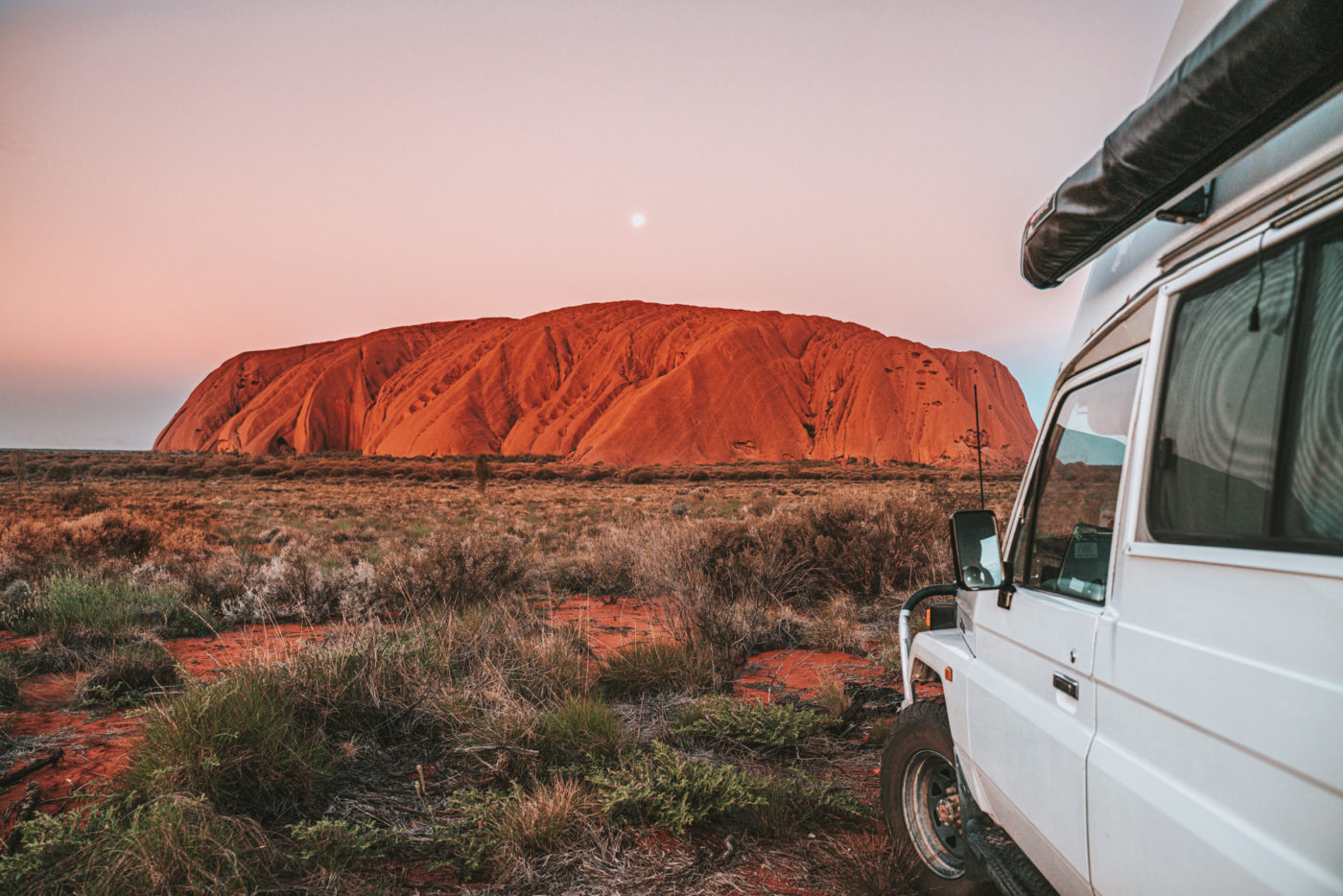
Other FAQs & Essential Info
Getting Around Uluru
The grounds at Ayers Rock Resort are easy to navigate on foot as everything is within 15 minutes walking distance. There’s also a free shuttle bus that makes its rounds around the resort and to the airport.
However, there is no shuttle to Uluru-Kata Tjuta National Park. You’ll need a vehicle, which you can hire in Alice Springs.
There is an IGA at Ayers Rock Resort, along with some souvenir shops and a few restaurants if you need groceries or supplies. You can visit the resort—also known as the town of Yulara—even if you’re not staying there.
How Many Days Do You Need In Uluru?
We recommend spending at least 3-5 days in Uluru to see the sites at your own pace. If you’re short on time, you can see the highlights in 2 days, but it’s far better if you’re not rushed.
If you have an extra couple of days, include Kings Canyon, also known as Watarrka, in your upcoming trip. This spectacular destination features sheer rock walls, the lush Garden of Eden, waterfalls, and a full display of colours during sunset. To reach Kings Canyon from Alice Springs, you can use the shared shuttle bus service or rental cars unless you have your own private vehicle.
Watarrka National Park is also worth visiting. It’s a conservation area, home to 600 plant species and native animals. The impressive red canyon walls rise 100 metres above forests full of ferns and cycads and typical species like river red gums, grevilleas, and black gidgee.
The highlight of Watarrka is, without a doubt, the Red Canyon itself. It’s definitely one of the best free things to do in Uluru!
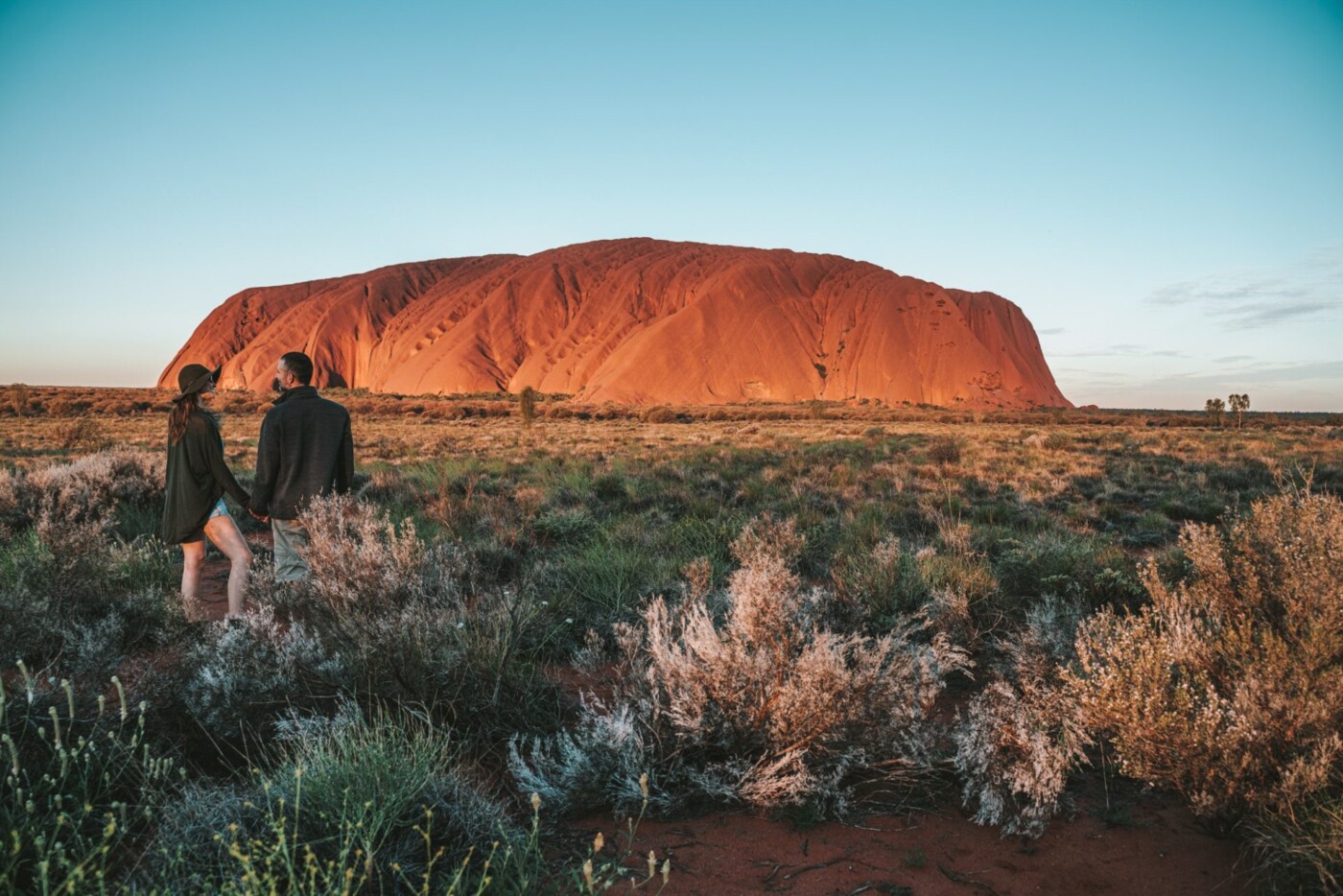
What Is There To Do In Uluru For 3 Days?
The most popular itinerary for visiting Uluru is 3 days, where you can see most of the top things. Spend day 1 in Uluru-Kata Tjuta National Park at sunset or sunrise and day 2 at the Olgas for sunset. Enjoy day 3 checking out the other Uluru activities noted above. This will line up perfectly with your 3-day park pass.
Have you been to Uluru? What was the highlight of your visit?
READ NEXT: Guide To Visiting The East & West MacDonnell Ranges

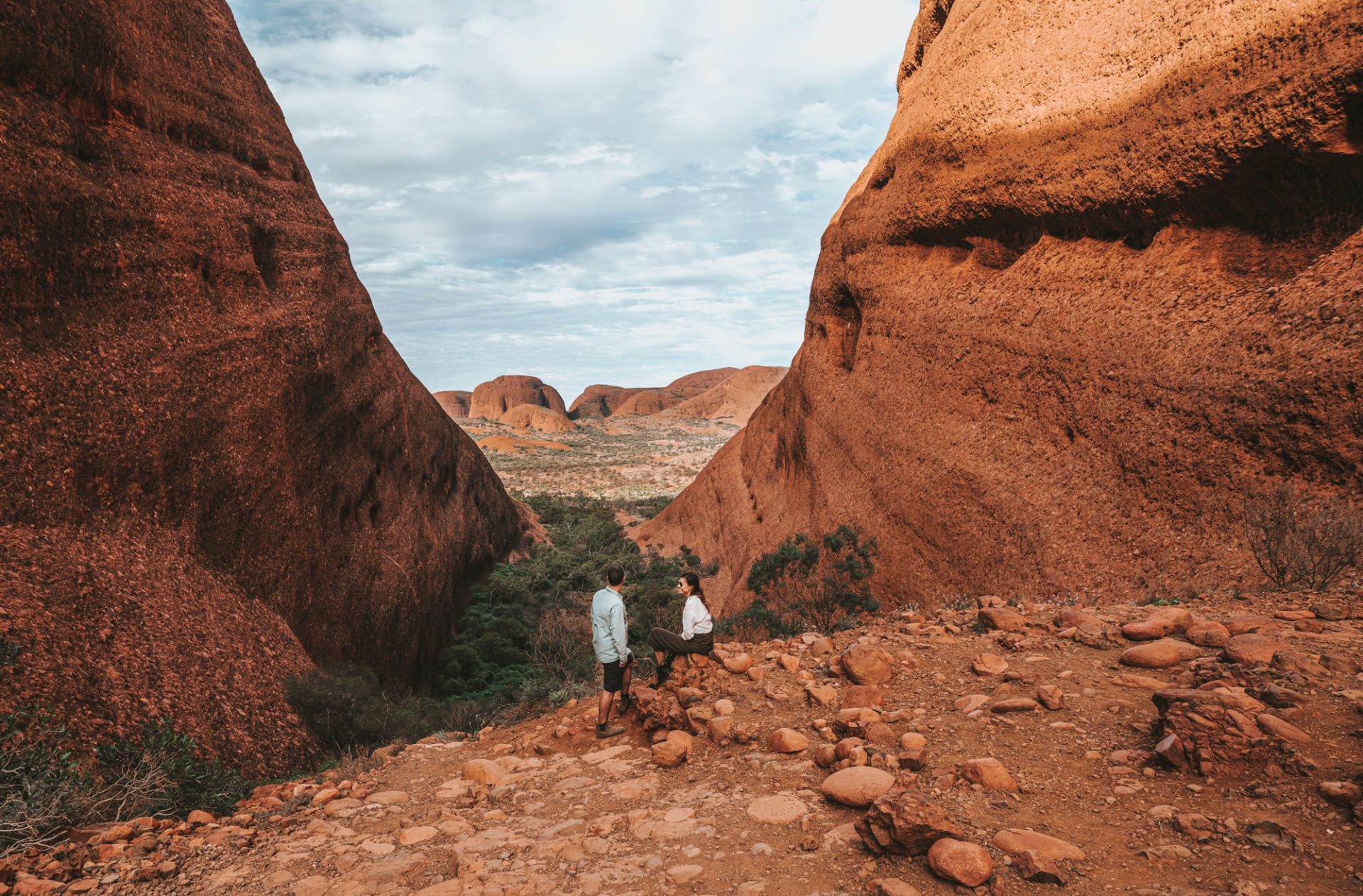
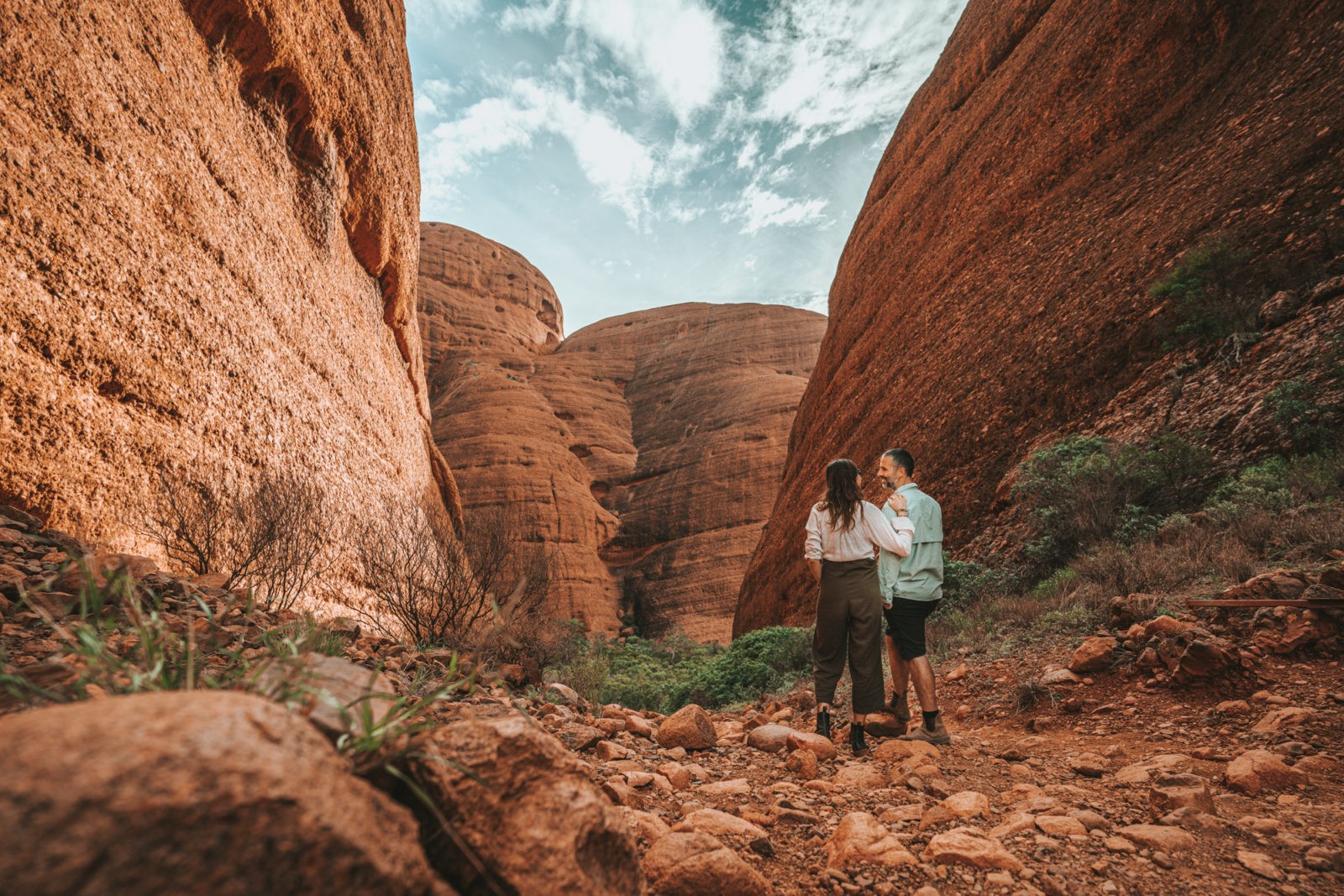

I plan to visit Australia and hire a car to drive around Melbourne. And then I’m thinking of going to Uluru. Tell me, do I need a guide or is it not necessary?